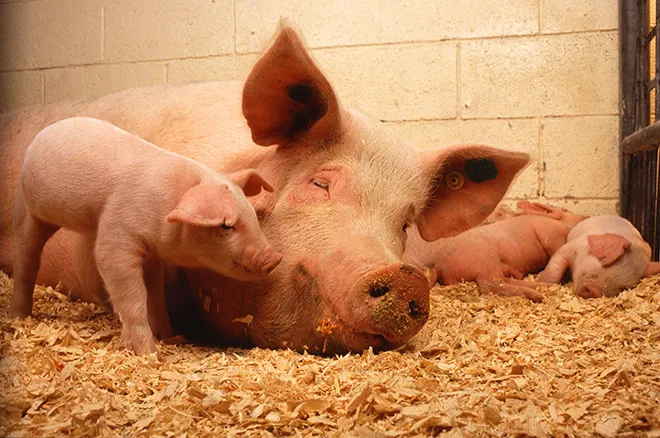
Report: Conservation funding for smaller farms needed in Farm Bill
(Missouri News Service) The U.S. Department of Agriculture touts its conservation programs for farmers, but a new study from the Institute for Agriculture and Trade Policy found last year, three of four applications for the programs were denied.
The Conservation Stewardship Program and the Environmental Quality Incentives Program help farmers handle flooding and drought.
Michael Happ, program associate for climate and rural communities at the institute, said the programs received more than $19 million as part of the Inflation Reduction Act, which his group thinks should be made permanent.
"In a lot of cases, there are farmers who would like to be doing more conservation practices on their farm, would like to grow their food in a more agro-ecological way, but just feel like financially that's not an option," Happ observed. "These programs help open financial options for them."
The report's recommendations include doubling current Farm Bill spending on conservation and improving access to credit and land for farmers of color, as well as for small, medium-sized and beginning farmers.
Doug Doughty, a row crop farmer and cattle rancher from Livingston County, called the agriculture industry "off balance," with farm programs tilted toward large farms and industrial agriculture. He also called talk about eliminating the conservation compliance requirements for crop insurance "alarming," saying it is an important incentive for the crop insurance program.
"In return for these subsidies, here's what we are going to give the general public: cleaner water, less erosion, less erosion of nutrients," Doughty outlined.
Doughty has participated in both the Conservation Stewardship Program and the Environmental Quality Incentives Program. He contended they introduce farmers to new practices and technology, and provide support for healthy practices already in place.
Doughty added one of the Farm Bill's long-standing themes is stabilization. He pointed to the number of rural business, school and hospital closures and ongoing environmental degradation as evidence ag consolidation hasn't helped stabilize rural communities or the environment.
"We're stabilizing income and food, should we not be stabilizing our natural resources and our climate also?" Doughty asked. "Soil loss is still greater than soil production. And obviously, nutrient pollution continues to increase in agriculture."














